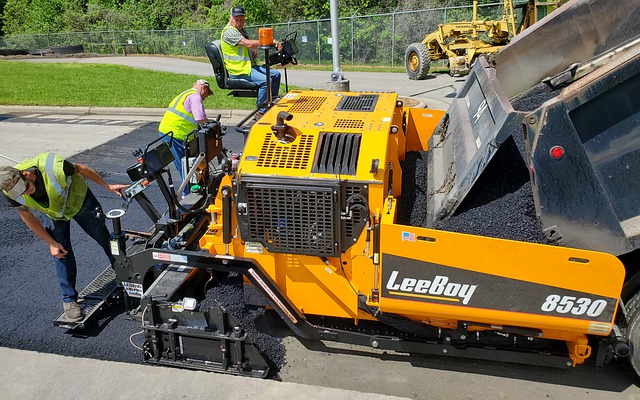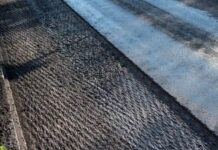Which Paving Material Should You Use: It can be hard to determine whether to use concrete or asphalt pavement. Neither material is superior to the other, and they are both better suited to specific projects. When choosing between concrete and asphalt driveways or parking lots, there are a few factors to consider. People often choose their paving material simply based on the initial investment.
Many folks prefer a low-cost option. The right pavement option can sometimes be a bargain — but this is not always the case. Because the costs of concrete and asphalt keep fluctuating, choosing a paving material that satisfies your pocketbook but not your paving needs will result in a short-term solution but additional material expenses down the line.
Advantages of Concrete paving
 Concrete can reduce future inconvenience as it has a longer lifespan. In fact, the average lifespan of concrete pavement is 20 to 40 years. Furthermore, concrete is fully recyclable — it can be easily broken down and reused in other construction projects.
Concrete can reduce future inconvenience as it has a longer lifespan. In fact, the average lifespan of concrete pavement is 20 to 40 years. Furthermore, concrete is fully recyclable — it can be easily broken down and reused in other construction projects.
Overlays are available for both concrete and asphalt. They require less construction and overall upkeep, and they can also help a pavement surface last longer by increasing its resistance to salt, chemicals, UV rays, and other detrimental factors, including freeze-thaw cycles and vehicle spills. Whitetopping, ultra-thin white topping (UTW), bonded overlay, and unbonded overlay are the most common types of concrete overlays.
Disadvantages of Concrete paving
The paving cost for concrete is often marginally higher than the paving cost for asphalt. Repairing a concrete pavement often necessitates the replacement of an entire slab, escalating repair costs. While concrete pavements are less likely to form potholes than asphalt surfaces, motorists’ safety remains a concern. During rainy or snowy conditions, vehicles tend to slide more on concrete surfaces than on asphalt.
Advantages of Asphalt Pavement
Asphalt is less expensive than concrete, and it also takes less time to install. Asphalt, like concrete, is 100% recyclable as it can be melted down and reused. Furthermore, thick asphalt pavements have a long lifespan and only require surface upkeep. The numerous advancements in asphalt overlay technologies have made these paving solutions particularly quick and cost-effective.
The options for asphalt overlays include recycling, rubblization, mill and overlay (otherwise known as a mill and fill), thin lift overlays, hot mix asphalt, open-graded friction courses (OGFC), stone-matrix asphalt (SMA), superior performing asphalt pavements (SUPERPAVE) and perpetual pavements.
Disadvantages of Asphalt Pavement
Although asphalt is more common than concrete, it is not suitable for every application. For example, asphalt pavements in areas prone to heavy downpours and cold, icy winters can get damaged due to adverse weather conditions and wear and tear. Asphalt surfaces are also prone to potholes.
Due to the material’s tendency to break down in freeze-thaw cycles, you may have to get the same potholes repaired numerous times throughout the season. Over time, this can lead to inefficiencies and increased expenses.
So, the question of concrete vs. asphalt pavement can be tricky to answer. The different properties of each material should ultimately be the most important factor in your decision.
Address
Commonwealth Paving, 136 Outerloop, Louisville, Kentucky 40214
Phone: 502-459-7283, Fax: 502-456-2678
Opening Hours
| Monday | 9:00 AM – 5:00 PM |
| Tuesday | 9:00 AM – 5:00 PM |
| Wednesday | 9:00 AM – 5:00 PM |
| Thursday | 9:00 AM – 5:00 PM |
| Friday | 9:00 AM – 5:00 PM |
| Saturday | Closed |
| Sunday | Closed |







